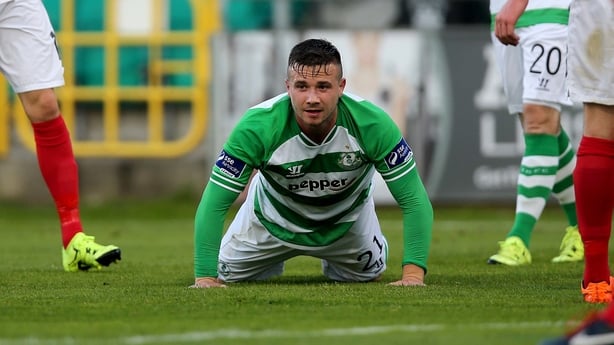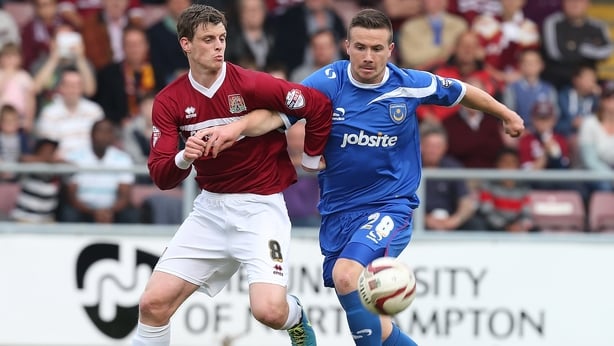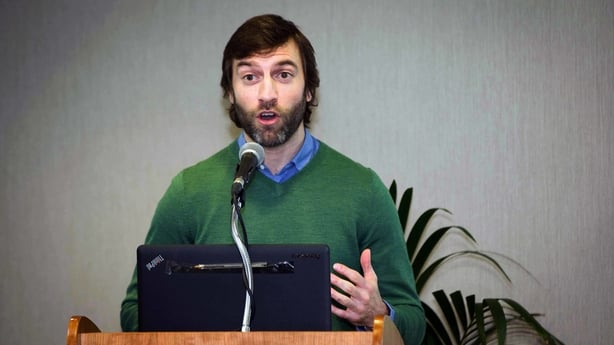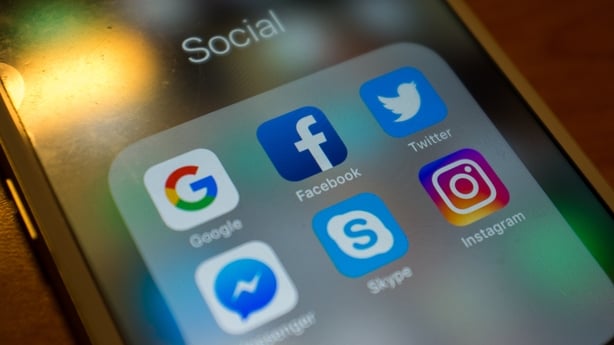Mikey Drennan is in a good place right now.
Settling into a new job as real world responsibilities kick in, the 24 year old is thriving playing with old friends at James Stephens hurling club and Evergreen FC.
Last year he played in the Kilkenny senior hurling final and played a key role as Evergreen reached the FAI Junior Cup final.
It is far removed from the dark days just a couple of years ago, where the former Aston Villa player tried to resurrect his football career with Shamrock Rovers, before quitting the game to deal with depression.
The forward may be in a positive frame of mind, but he still has the longing to return to football at a higher level. There have been some offers, but nothing that would provide the security he currently enjoys.
Drennan harbours the ambition for top level football, and is experienced enough now to deal with one of the major hardships of the modern world: online abuse.
Signed as a 16-year-old in 2010 by Aston Villa, the Kilkenny teenager signed a professional contract the following year as well as representing his country at underage level.
A foot injury halted his progress in 2013, and loan moves to Carlisle United and Portsmouth the following year failed to ignite his career. The dream quickly began to turn sour. Homesickness gripped him – he dreaded the return flights to Birmingham after visiting friends and family – while gambling also took hold. Some days he only got out of bed to go training.

In an effort to break out of the dark cycle, he joined Shamrock Rovers, but if anything, the situation deteriorated further.
In May 2016, just short of his 22nd birthday, Drennan decided to quit the game and open up on his mental illness. The weight began to immediately lift off his shoulders.
He is more content now and still impressing on the sporting front, his real passion.
Drennan scored two points in the Kilkenny County Final last year as Stephens went down to Dicksboro, and continues to line out for Evergreen. He recently started a sales role with Transfermate, a global payments company and is enjoying a level of security he has never previously experienced.
Online abuse is not something he encounters anymore.
"I’m out of the limelight now a couple of years. If anything, it’s people offering support and hoping I’m keeping well, would love to see you back playing’," he says.
"You try to laugh it off at the time, but then you think, ‘Jesus Christ, am I actually fat?’ and you begin to doubt yourself"
However he is acutely aware of the struggles of athletes, especially younger sports people, face on a daily basis.
While he expected it as a player, reading negative comments online had a greater impact than he probably realised at the time
"It does dent you in a way. When I went on loan at Portsmouth, I was after coming back from injury. Some people were calling me fat. You try to laugh it off at the time, but then you think, ‘Jesus Christ, am I actually fat?’ and you begin to doubt yourself."

He believes it is almost inevitable that you begin to doubt yourself and your ability
"Some lads take it as banter, others might go behind the scenes to talk to the manager or liaison officer. It plays on your mind and affects your mental well being.
"We had talks about social media, to be careful on it and we were warned about the abuse. The PFA have people you can talk with, but I never used it. At the time I didn’t think anything of it. The service isn’t used enough. Players don’t want to be known for talking about it, even though it is confidential. There is a fear it would get out."
It is pervasive in all demographics and backgrounds, and the major Irish sporting organisations are trying to address the problem.
The FAI has its own social media policy and conducts social media training with all the international teams each year. A spokesperson says clubs can seek advice if required.
The GAA is currently updating its own social media guidelines. In the four years since it was last published, the landscape has changed considerably. When completed it will be issued to all clubs, club secretaries and county boards.

"There is evidence out there that shows social media can be used as a conduit for social isolation, bullying," says Colin Regan, the GAA's Community and Health manager
"The challenge is that online transcends any setting. For example, if there was bullying in the school setting, at least the young person could get relief from it when they went home."
So what can be done?
Drennan says in dealing with it now, he would avoid looking at social media, suggesting those most affected should delete the relevant apps. "I’d keep away from comments and turn off Twitter notifications. Most of the abuse comes from Twitter."
Keen to return to the Airtricity League, he was close to joining Bohs at the start of the season. He knows that such a move would have resulted in a swift response online.
"I knew that if I signed with Bohs that I probably would have got abuse from some Shamrock Rovers fans. I’d probably be accused of being a traitor."
Of course disengaging completely is a huge ask when online is often the primary medium of communication.

"It’s the very crux of the discussion," says Regan. "In order to be mindful enough to disengage, you must have a very strong sense of self, a strong sense of adequacy and you must be very grounded in your own self so that you are not affected by the opinions of others.
"We know from research that those type of skills are developed through engagement in team sports. The factors that protect and enhance our mental health are self adequacy and belonging to something bigger than yourself such as team sports.
"It is a bit of a Catch 22 that some people who are most affected by comments online are the people that don’t have those solid foundations in place."
"Some lads might seem happy as Larry, but inside they could be dying"
Drennan for his part is much more comfortable in talking about his problems and providing a listening ear than he was in his early days as footballer.
"Thinking about it now, I’d want to talk about it with someone, even if it was only something small, just to get it off your chest. It’s the small things that matter. Talking to someone for five minutes even, it feels like a weight off your chest. I found that when I eventually started talking to family and friends."
"Some lads might seem happy as Larry, but inside they could be dying. Some people want to talk, some don’t."
This week, RTÉ is running a special initiative on Youth Mental Health across a range of services. The Big Picture - Youth Mental Health strand aims "to shine a light on one of the most important issues in the country". It culminates on Thursday 26 April with an hour-long TV documentary and follow-on studio discussion.


